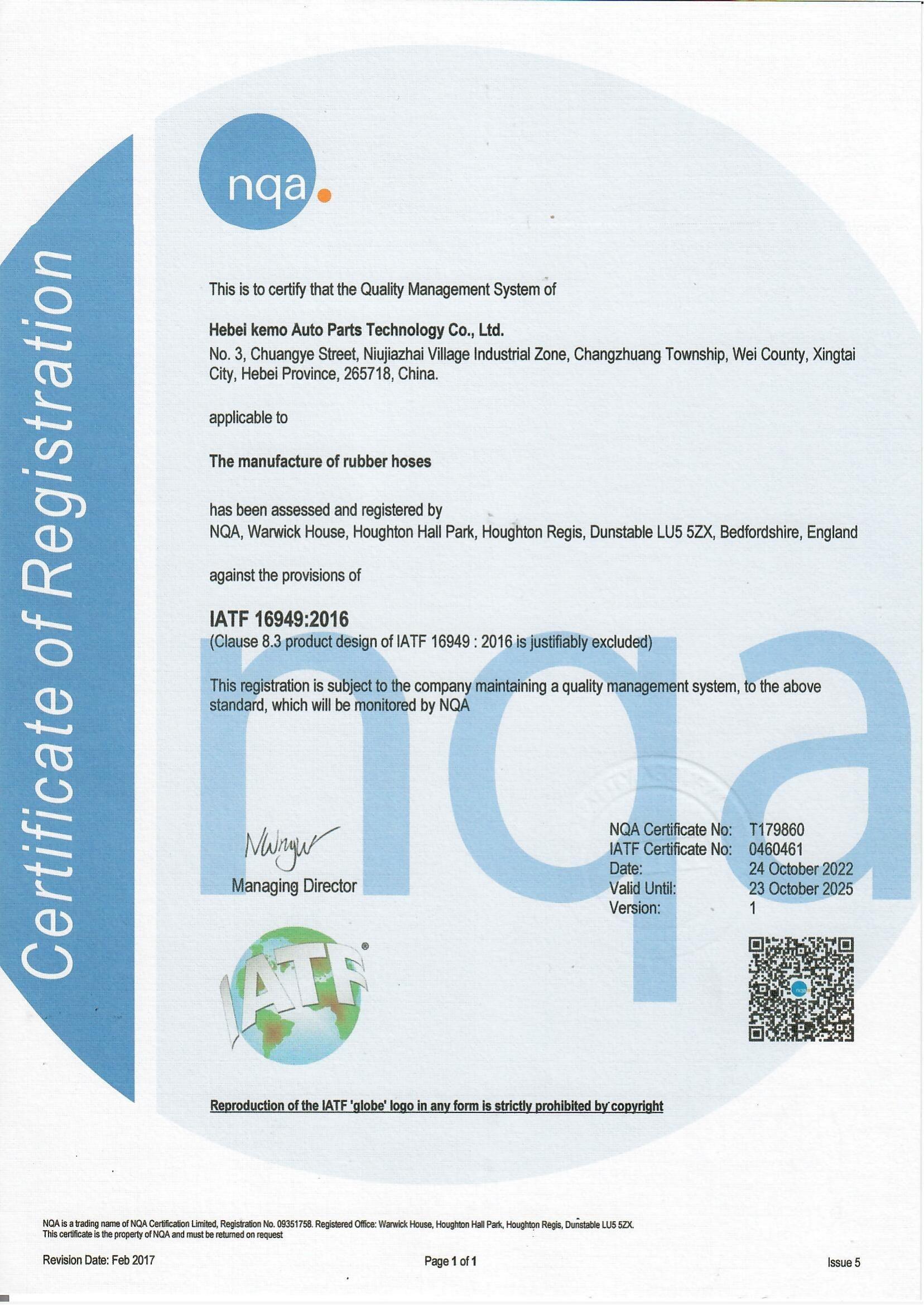Understanding Hose Fuel Line Functions and Maintenance Tips for Optimal Performance
nóv . 09, 2024 21:50 Back to list
Understanding Hose Fuel Line Functions and Maintenance Tips for Optimal Performance
Understanding Hose Fuel Lines Importance, Types, and Maintenance
In the world of automotive engineering, the fuel system is a critical component that ensures optimal performance and efficiency of a vehicle. One of the essential elements of this system is the hose fuel line, which serves as the conduit through which fuel flows from the tank to the engine. Understanding the significance, types, and maintenance of hose fuel lines can help vehicle owners ensure their systems function smoothly and prevent costly repairs down the line.
The Importance of Hose Fuel Lines
Hose fuel lines are integral to the operation of any fuel-injected or carbureted engine. They are designed to withstand high pressures and temperatures, ensuring a steady and safe flow of fuel to the engine. A properly functioning fuel line is crucial for maintaining the engine's performance, as any disruptions in fuel flow can lead to stalling, engine misfires, or even complete failure.
Additionally, the material and quality of hose fuel lines can significantly impact vehicle safety. Poorly made hoses can become brittle and fail, leading to leaks. A fuel leak not only hinders performance but poses serious fire hazards. Therefore, understanding how hose fuel lines work and keeping them in good condition is essential for any vehicle owner.
Types of Hose Fuel Lines
There are various types of hose fuel lines, each designed for specific applications
. The most common types include1. Rubber Fuel Hoses Traditional rubber hoses are flexible, resistant to fuel, and relatively inexpensive. However, they may not withstand high temperatures as well as other materials, and over time, they can degrade without proper maintenance.
2. Reinforced Nylon Hoses These hoses offer greater resistance to fuel and temperature variations. Their reinforced design provides better durability, making them suitable for high-performance vehicles.
3. Metal Fuel Lines In contrast to rubber and nylon, metal fuel lines (typically made of steel or aluminum) are rigid and provide excellent protection against punctures and damage. However, they can be challenging to install and may be heavier than their rubber counterparts.
hose fuel line

4. PTFE (Teflon) Hoses Known for their exceptional chemical resistance, PTFE hoses are commonly used in high-performance applications. They maintain their integrity under extreme temperatures and pressures, making them ideal for racing vehicles.
Maintenance of Hose Fuel Lines
Maintaining hose fuel lines is crucial for their longevity and performance. Here are some essential tips for effective maintenance
1. Regular Inspections Periodically check hose fuel lines for signs of wear, such as cracks, bulges, or leaks. Pay attention to connections and fittings, as these are common leakage points.
2. Replace When Necessary If you notice any signs of damage or degradation, replace the hose immediately. Delaying this can lead to more significant problems, including fuel leaks and potential engine damage.
3. Use Quality Parts Always opt for high-quality hoses designed for your vehicle's specific requirements. Cheap, substandard parts might save you money initially but can lead to costly repairs in the future.
4. Professional Servicing When in doubt, consult a professional mechanic for an inspection or maintenance work. They have the expertise to identify issues that may not be immediately apparent to the average vehicle owner.
Conclusion
Understanding hose fuel lines is vital for any vehicle owner concerned about performance, safety, and longevity. By recognizing their importance, knowing the types available, and committing to regular maintenance, you can ensure your vehicle runs efficiently and safely for years to come. In the realm of automotive care, attention to detail can make all the difference between a well-functioning vehicle and one that incurs unnecessary repair costs. Always prioritize the integrity of your hose fuel lines and enjoy peace of mind on every journey.
